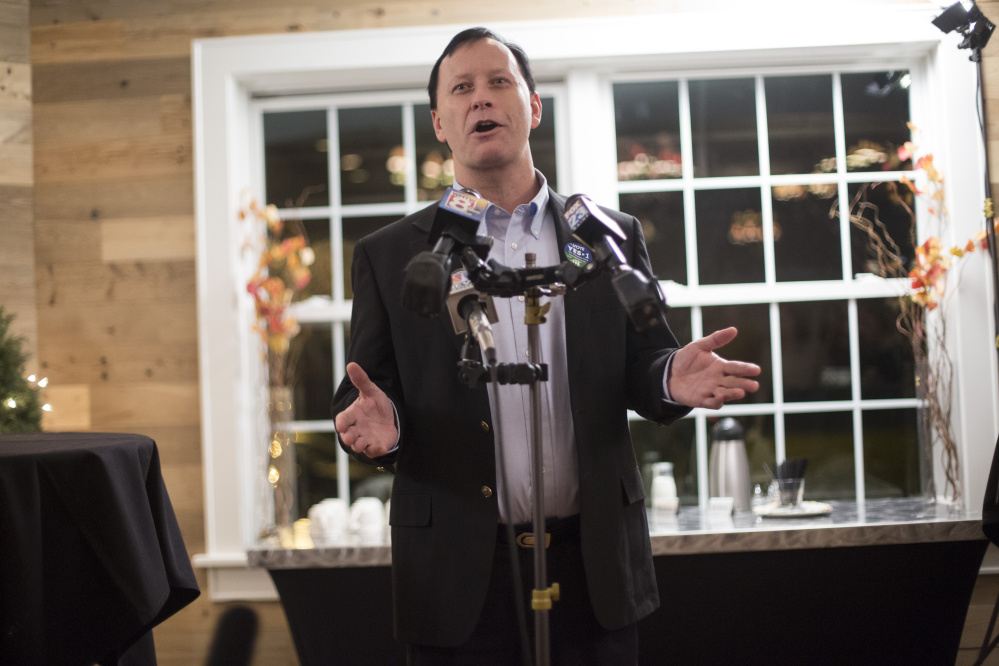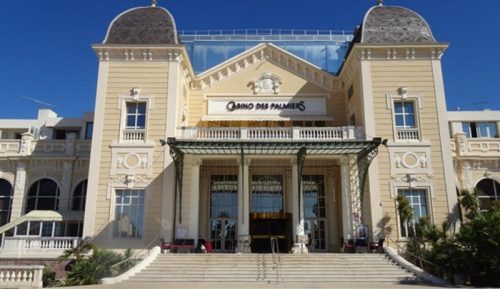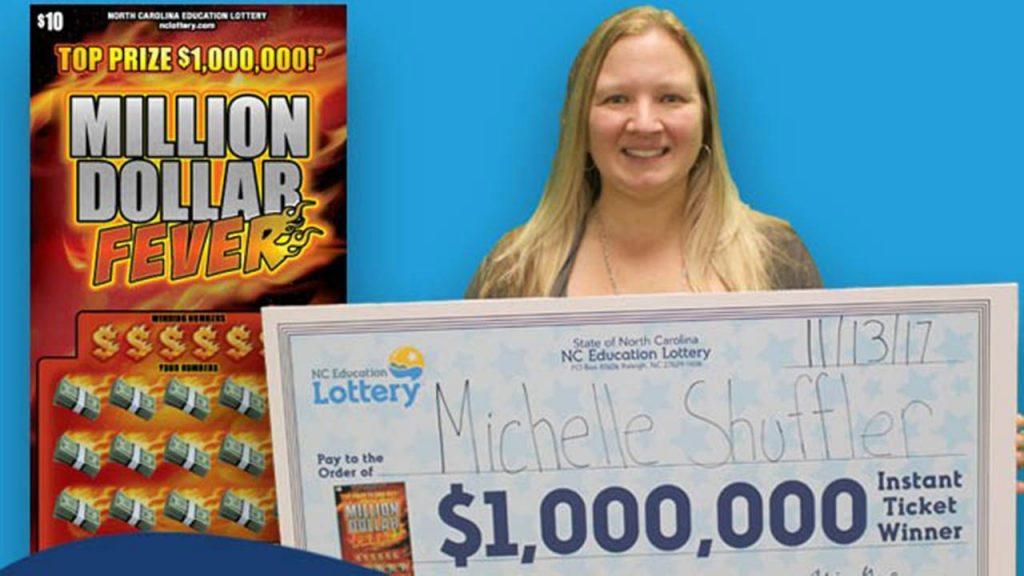
Here are the three players that we have seen little of over the past several years, but we are quite certain that they have a lot to show.
Chris Ferguson
In a nutshell, Ferguson, who was co-founder of Full Tilt Poker, and three other individuals at the online poker room were indicted by the US Department of Justice for allegedly running a Ponzi scheme that had paid out nearly $450 million worth of players’ money to themselves. While Ferguson never admitted to being part of such a scheme and his guilt never was never proved, doubt over his integrity has remained within the poker community.
Following his indictment, the 2000 WSOP Main Event champion disappeared completely from poker. Little was heard of Ferguson in the years after 2011. The player eventually reappeared on the live poker stage last summer, when he joined the flock of WSOP participants in Las Vegas.
He cashed in ten events last summer, with his fourth-place finish in the $10,000 No-Limit Hold’em 6-Handed Championship marking his deepest run. While Ferguson made his official comeback last year, it can be said that it was this year that he made bigger headlines.
Following this year’s editions of the WSOP and WSOP Europe festivals, the player was crowned the 2017 WSOP Player of the Year. Ferguson cashed in 17 WSOP events during the summer series and in five more during the WSOP Europe that took place in October at King’s Casino Rozvadov in the Czech Republic to collect 1,178.53 points and top the prestigious ranking.
In Las Vegas, he made two final tables, finishing fourth in the $10,000 Pot-Limit Omaha Hi-Lo 8 or Better Championship for $150,929, and second in the $10,000 Seven Card Stud Championship for $151,700. In Rozvadov, he topped the field of the €1,650 Pot-Limit Omaha Hi-Lo 8 or Better for €39,289 and his sixth WSOP gold bracelet.
Ferguson clearly re-entered the world of live tournament poker with flying colors. However, there were quite a lot of people who were not ready to welcome him back happily. Daniel Negreanu, known to be among the most outspoken representatives of the global poker community, criticized his fellow player for never offering an apology to those affected by the 2011 Full Tilt Poker scandal.
Negreanu first commented on Ferguson’s return last year and maintained his stance this year, as well. He took to Twitter when Phil Hellmuth posted a picture of him and Ferguson on his profile during the WSOP Europe.
Despite the stream of negativity towards Ferguson, there were also players who seemed to be ready to give him a chance. In a recent podcast, UK poker pro Charlie Carrel dwelt that people should be nicer to the disgraced player. Carrel also went on to say that multiple poker insiders have told him Ferguson was almost certainly innocent.
Gus Hansen
The player has been rumored to have lost over $20 million in high stakes cash games. He said in a 2014 interview with Danish poker news outlet Pokernyhederne, that he blamed himself for his bad run and that he was considering switching to lower stakes poker. Eventually, the player left the poker stage altogether for several years. Until last year.
First indications that the player was returning to poker appeared last summer when it was reported that he was seen at the cash game tables of various Las Vegas casinos. In a November 2016 interview with Poker News, the Great Dane, as he is known in the poker community, confirmed that he was planning to re-enter the poker stage in 2017. Hansen was seen at more cash games during the first half of the year.
This spring, he even made his first televised appearance. He took part in the Celebrity Cash Kings cash game festival at King’s Casino Rozvadov, playing against Antanas Guoga, Leon Tsoukernik, and Sam Trickett, among others.
Most recently, Hansen appeared in a prestigious live tournament. The player took part in this year’s WPT Five Diamond World Poker Classic $10,400. Here it is interesting to note that he took down the first ever such event back in May 2002. This was his first in-the-money finish ever, and his first live tournament title ever. Hansen did not cash during the 2017 edition of the event, but at least we know now that he is making steps towards returning to poker.
Phil Ivey
The more publicity the cases gained, the less we heard from Ivey, whom many consider one of the world’s best poker professionals and card players as a whole. One of the cases was concluded in October, but the outcome was not in the player’s favor.
Ivey lost his appeal to the Supreme Court of the United Kingdom, with Supreme Court justices upholding the Court of Appeal’s decision from 2016 that Crockfords Casino should not pay the player his winnings due to his use of edge-sorting to gain advantage.
January 2016 was the last time the player cashed in a live tournament. He finished fifth in the $200,000 Triton Super High Roller for $656,500. The player has not taken part in a live tournament since then. What is more, few knew where he was exactly until the second half of 2017, when reports emerged that he was playing cash games at Macau casinos.
Many hoped that Ivey will return to the live tournament stage during the WSOP this summer. This did not happen, but it seems that the player has said in a recent interview with an Asian media outlet that he plans to make his comeback in 2018.
It is also important to note that Ivey was inducted into the Poker Hall of Fame this year, along with the late David “Devilfish” Ulliott.
The post Biggest Live Poker Comebacks of 2017 appeared first on Casino News Daily.

These five remarkable businessmen currently top Forbes’ richest gambling representatives list. And while they are involved in different sectors of the global gambling industry, it can be said that they have quite a lot in common. They have found what it comes down to to become a wealthy gambling boss, have come up with concepts all unique for the industry, and have spotted the right niche to eventually create and grow successful gambling enterprises. Here is how they have achieved what they have achieved.
Sheldon AdelsonNet Worth: $30.4 Billion (Forbes: December 2017)/Self-Made Billionaire
The stories of self-made billionaires who managed to take themselves from the streets to the top of world’s richest people lists are countless. And Sheldon Adelson, the founder of one of the world’s largest casino companies (if not the largest) has one such rags-to-riches story.
Mr. Adelson was born in 1933 in one of Boston’s poorer neighborhoods. He sold newspapers in his teenage years and later on entered The City College of New York, where he commenced his corporate finance studies. He left two years later, never finishing his degree. Little did the college dropout know that he would happen to become one of the rulers of the casino world.
Mr. Adelson was engaged in different business endeavors in the 1960s. In the early 1970s, he started a dedicated show for the computer industry, interest in which was growing quite rapidly at the time. The first edition of the show was held in 1973 and saw modest success. However, Mr. Adelson felt that he was on the right path and sold a number of his other businesses to dedicate his attention to the computer show.
The businessman’s work in the field eventually brought to life the Computer Dealers Expo (COMDEX) in the late 1970s. The event took place at MGM Grand Hotel in Las Vegas. It took less than a decade for it to become the largest computer-dedicated show in the world.
Adelson made his first foray into the casino world when he purchased the emblematic Sands Hotel and Casino, which had been known to be a favorite spot to stars like Frank Sinatra back in the 1950s. The property’s new owner redeveloped it into a multi-purpose complex that featured retail, dining, and entertainment facilities.
In 1990, Mr. Adelson opened the Sands Expo and Convention across the street from the Sands Casino. The center was the second largest one in the world at the time. It can thus be said that the businessman was the founder of what is now known as the MICE integrated resorts model. Multiple integrated resorts with meeting and convention space have been built over the past 27 years, following the success of Mr. Adelson’s endeavors and changing the casino, tourism, and hospitality industries for good.
The casino mogul further expanded his gambling and hospitality business in Las Vegas and later on in Macau and Singapore through Las Vegas Sands, the company he founded in 1998 gradually grew into the world’s largest casino operator. Its market cap stood at around $55 billion as of early December.
Las Vegas Sands Properties:
Sands Expo and Convention Center
The Venetian Las Vegas
Sands Macao
The Venetian Macao
The Palazzo Las Vegas
The Plaza Macao
Sands Bethlehem
Marina Bay Sands
Sands Cotai Central
The Parisian Macao
Net Worth: $16.4 Billion (Forbes: December 2017)/ Self-Made Billionaire
Carl Icahn is yet another billionaire businessman who was raised in relative poverty, but had a bent for business that eventually rocketed his name to the very top part of the world’s richest list. Icahn was born in 1936 and grew up in the Far Rockaway neighborhood in Queens, New York. The neighborhood was and still is quite a poor one.
His mother was a school teacher and his father was a lawyer and cantor at the neighborhood’s synagogue. Icahn himself said that he has always had a drive for success.
The businessman was a gifted student and was very keen on going to college. His parents said that they would pay his tuition fees only if he was admitted in an Ivey League college. Icahn applied to Harvard, Princeton, and Yale and was accepted by all three. He eventually picked Princeton where he studied philosophy. Icahn has said in interviews that his years at Princeton helped him succeed in his future business endeavors.
The businessman is widely known as one of Wall Street’s most colorful representatives and one of the most aggressive investors out there. Sometimes brash and controversial, his business tactics have won him the reputation of a corporate raider.
Icahn has been involved in different businesses over the years through his holding company Icahn Enterprises. The conglomerate has invested in real estate, auto parts, casinos, entertainment, and energy, among other things.
In 1998, Icahn was given the green light by the Nevada Gaming Commission to operate the bankrupt Stratosphere Casino and Arizona Charlie’s casino, which was under Chapter 11 bankruptcy protection at the time. The businessman agreed to sell the two properties as well as the Boulder casino and Aquarius Casino Resort (both located in Nevada) and a portion of empty land in Las Vegas to Goldman Sachs’ Whitehall Street Real Estate Funds in 2007 for the total amount of $1.3 billion. The deal was completed at a profit of nearly $1 billion for Mr. Icahn.
The purchase and the subsequent sale of the unfinished Fontainebleau casino resort on the Las Vegas Strip was yet another highly profitable move. Mr. Icahn bought the property in 2009 for $156 million. Here it is important to note that the complex was under Chapter 11 bankruptcy protection at the time. In 2015, the billionaire businessman listed Fontainebleau for sale at a price of $650 million. He sold the unfinished resort in August 2017 to investors New Valley LLC and Witkoff Group for the total amount of $600 million.
Mr. Icahn’s casino interests also spread to New Jersey and more specifically to Atlantic City. In 2009, the state’s Casino Control Commission backed the investor’s bid to assume control over Tropicana Casino Resort. His proposal to buy the then struggling property emerged a year earlier at a bankruptcy auction.
Back in 2009, Mr. Icahn was also battling now US President Donald Trump over the latter’s bankrupt Atlantic City casino resort business Trump Resorts Entertainment. The company was the owner of the now shuttered Trump Plaza, Trump Taj Mahal as well as of Trump Marina, which was bought by Tilman J. Fertitta’s Landry’s Inc. and now operates as Golden Nugget Atlantic City.
Mr. Icahn eventually acquired Trump Resorts Entertainment in 2015. Trump Plaza had already been shuttered by that time, and Trump Taj Mahal barely escaped bankruptcy. The latter property closed doors in October 2016 after a prolonged workers’ strike, during which staff picketed the casino resort over contract dispute with its owner. Mr. Icahn actually blamed Trump Taj Mahal’s closure on the strike. He sold the shuttered casino this spring to Florida-based casino developer Hard Rock International.
Lui Che WooNet Worth: $12.1 Billion (Forbes: December 2017)/ Self-Made Billionaire
At the age of 88, Chinese businessman Lui Che Woo survived the atrocities of World War Two, grew up in extreme poverty, and used every lesson life served him to build his business empire. Mr. Lui is one of Asia’s wealthiest people and most successful entrepreneurs.
He was born in Mainland China’s Guangdong province, but spent most of his childhood in Hong Kong. At the age of 13, he became his family’s breadwinner. This was when he gradually began entering the world of business.
He sold peanuts for a while to support his five sisters and the rest of the family. Later on, Mr. Lui joined his uncle’s car parts company as a stock keeper. He founded his own car parts company after gaining experience at his uncle’s.
He made his “first pot of gold” when he sold heavy machinery left behind in Japan after the Korean war to Hong Kong contractors. This helped him launch K. Wah Group in the 1950s. It later on became the parent company for his other businesses.
Over the years, Mr. Lui expanded his operations across different fields including construction materials supply, real estate, hospitality, and casino gambling. He also extended his businesses’ footprint across Southeast Asia and the United States.
He entered the hospitality industry in the 1970s when he purchased a waterfront site to build what would become Hong Kong’s first star-rated hotel. The businessman believed that he was onto something big and that demand for world-class hotels in the region would explode. And he turned quite right.
In 2002, Mr. Lui founded Galaxy Entertainment Group, the company that later on became parent to his casino operations. The businessman decided to explore the world of gambling after the Chinese government had given the nod to the construction of casino venues in Macau. Galaxy Entertainment was selected as one of the six preferred bidders for the city’s gaming concessions.
The company now operates its flagship property Galaxy Macau, an integrated resort with a gaming floor and multiple hotel, entertainment, dining, retail, and convention facilities, as well as several city casino clubs. It has recently emerged that Galaxy Entertainment has partnered a Philippine developer to build a $500-million integrated resort on the Boracay Island.
Johann GrafNet Worth: $7.2 Billion (Forbes: December 2017)/ Self-Made Billionaire
The founder of international gambling company NOVOMATIC Group is yet another self-made billionaire. Mr. Graf was born in 1947 in Vienna, Austria. He was raised by his grandparents in a single-room apartment without running water.
He apprenticed as a butcher at a young age and his family hoped that he would take over their butcher business. However, Mr. Graf had different plans for his life. Sensing a good opportunity, he began importing pinball machines to his home country through Belgium. He distributed the gaming devices across cafés, pubs, and other facilities around Austria.
With the popularization of electronic gaming machines, Mr. Graf grabbed what he believed was yet another good opportunity to extend his business, and formed Novomatic Automatenhandels AG in 1980. The company saw a quick growth which allowed it to expand its geographic footprint to Switzerland and across the East Bloc.
NOVOMATIC has grown into a company that annually generates billions of dollars in revenue, produces slot machines, electronic table games, video poker and video lottery products, and runs a chain of land-based casinos, with most of the venues operating under the Admiral brand. NOVOMATIC has offices in more than 40 countries and supplies its products across 80 countries.
Mark ScheinbergNet Worth: $4.5 Billion (Forbes: December 2017)/ Self-Made Billionaire
Mark Scheinberg and his father, Isai Scheinberg, are recognized as the founders of PokerStars, the world’s largest online poker room. Mr. Scheinberg was born in Israel in 1973, but moved to Canada with his family at the age of 13. He was admitted to Fanshawe College of Applied Arts and Technology in London, Ontario, but spent only a year there before dropping out and moving to Toronto.
In Toronto, he started a job in hospitality and spent the next several years of his life traveling around South America and Asia.
The Scheinbergs eventually entered the world of online gambling in September 2001, when they launched PokerStars. The website initially offered play-money games only. The real-money wagering options arrived in December 2001.
Mark and his father, an experienced computer programmer, held a controlling stake in PokerStars’ parent company, Rational Enterprises. Although the online poker room was launched at a time when the Internet was still a bit of a weird place, its popularity among players grew exponentially within a very short period of time.
It can be said that PokerStars was at the center of what has become known as the boom of online poker in the mid-2000s. In 2003, Chris Moneymaker won the WSOP Main Event after securing a seat into the world’s most prestigious No-Limit Hold’em tournament through a PokerStars online satellite. The next several years saw an explosion in demand for online poker, a trend that many dubbed the Moneymaker effect.
In 2011, Isai Scheinberg was one of the people indicted by the US Department of Justice on five charges related to the provision of real-money online poker services to US players in the years following the implementation of the Unlawful Internet Gambling Enforcement Act of 2006.
In 2014, the Scheinbergs sold their stake in PokerStars’ parent company, the Rational Group, to Canadian gambling company Amaya Inc. (now The Stars Group). The deal was at the time the largest one to have ever taken place within the online gambling space. With Canadian businessman David Baazov at the company’s helm, Amaya paid the amount of $4.9 billion for the online poker business.
The sale actually made Mark Scheinberg one of the world’s youngest billionaires. The businessman reportedly cashed around $3.6 billion from the deal. He has been investing in different other fields since cashing out from the Rational Group. It has recently emerged that he is participating in a development project for the construction of a multi-purpose complex in Madrid.
The post Wealthiest Gambling Bosses of 2017 – the Rags-to-Riches Stories of Five Remarkable Visionaries appeared first on Casino News Daily.

Casinos across the US and its territories, as well as in Macau, bore the wrath of Mother Nature over the past 12 months. In the end, it was gambling revenues that took the hit, as numerous Cat 4 and 5 hurricanes and typhoons pummeled both the American and Asian gaming markets in 2017.

Macau was hit hard by mother nature this past fall, with August’s Typhoon Hato causing severe damage. It was but one of a series of catastrophes that left its mark on the casino industry globally. (Image: Anthony Wallace/Getty)
Casino closures, guest room cancellations, and inaccessibility following storm damage were among the factors that caused the industry to feel the pain at the bottom line this past year.
The Thunder RoaredThe 2017 Atlantic hurricane season was hyperactive, with six major Category 3 or stronger storms hitting the US, Puerto Rico, and the Caribbean. Over 420 people died, and final damage estimates are predicted to be close to $200 billion across the board.
Harvey
The first major hurricane this year to make landfall in the US was Hurricane Harvey, a Category 4 storm that hit Texas and the Houston area in late August. While the hurricane devastated much of southeastern Texas, riverboat casinos located in nearby Lake Charles, Louisiana, were spared.
Despite being docked in Galveston, the Jacks or Better casino cruise ship got lucky. Just 50 miles southeast of Houston on the Gulf of Mexico, the company, not necessarily advisedly, resumed providing gambling tours just days after much of the state endured a Category 4 hurricane.
Hato
Almost at the exact time that Harvey was doing damage in Houston, over 8,000 miles away in Macau, Typhoon Hato was delivering massive blows to China’s special gaming enclave in August.
The storm was the strongest to hit Macau in 53 years. Ten people died, and Hato caused almost $2 billion in damage in South China. The storm closed casinos and caused delays to the MGM Cotai , which is now expected to open its doors in January.
Executives from the six licensed casino companies in Macau, which will begin seeing permits expire as of 2020, stepped up to help aid in the city’s recovery. Combined, the six operators donated $26.7 million to Macau charities. Las Vegas Sands and its founder Sheldon Adelson led the way, with a $12.3 million pledge. Wynn Resorts gave $3.75 million to Macau, and another $3.75 million to Houston’s Harvey, an altruistic move, considering there are no legal land-based casinos in Texas.
US Takes a HitIrma
Hurricane Irma, a Category 5 storm that was deemed the most powerful hurricane ever recorded in the Atlantic basin outside the Caribbean and Gulf of Mexico, hit landfall in the US in early September. The storm pummeled towards Florida, but casinos and parimutuel tracks fared well.
Many gambling venues provided electricity and a climate-controlled escape, as power was slow to be restored in the southern part of the steamy and warm Sunshine State.
Maria
The final bad weather chapter in 2017 was devastating. Category 5 Maria targeted Puerto Rico, and made landfall on September 20. The storm caused catastrophic damage, and led to a humanitarian crisis, as hundreds of thousands went without fresh water, fuel, electricity, phone service, and other vital basic necessities for weeks.
Casino resorts across the island were closed for days after the storm, but began reopening in the weeks following Maria.
The post Casinos Pay Price for Unusually Stormy Year, as Mother Nature Lets Loose in 2017 appeared first on Casino.org.
Sports scandals engulfed not only coaches, players, and fans in 2017, but everyone from President Donald Trump and former Wall Street executives, to league front offices and television networks.

It divided the players and the country, and the NFL kneeling debate was unquestionably the biggest sports scandal of the year. (Patrick Smith/Getty)
It was a turbulent 12 months, and the stakes were high. The sports world didn’t only revolve around championship games and rivalries, but social injustice, drug addiction, bribery, and more.
Players Take a KneeFew stories in America made more headlines in 2017 than the NFL kneeling controversy. Protesting social injustices and police brutality against minorities, hundreds of professional football players began refusing to stand for the traditional start-of-game national anthem.
The controversy escalated when President Trump added his Twitter voice to the issue, urging fans to boycott the league and owners to fire players who refused to stand.
Ratings for the NFL subsequently suffered, which also led to a lower handle for Las Vegas oddsmakers, as TV viewer interest began to wane the longer divisiveness over the issue wore on.
Golf Scandals (Seriously)For a sport where fans typically give a polite clap (save a “mashed potatoes!” yell) after a good shot, golf certainly made its share of shocking headlines in 2017. The biggest was, of course, Tiger Woods’ DUI arrest.
In May, the 14-time major winner was arrested after he was found asleep at the wheel of his running SUV. Toxicology reports found no alcohol in his system, but a dangerous cocktail of pain medications and THC (the active ingredient in marijuana) did show up.
Woods’ absence hurt television ratings, but he did return in late November to competitive golf.
Phil Mickelson also got involved in some bad press through an insider trading scandal. His golf pal Billy Walters, known as the most successful sports bettor in Nevada history, was found guilty of using confidential information provided to him by an indebted gambler to make $43 million in stock profit on Dean Foods.
Lefty had also made about $1 million on the stock tip, but returned the money and was cleared of any wrongdoing.
B-Ball BriberIn September, the FBI brought charges against legendary coach Rick Petino’s Louisville basketball program for its alleged involvement in a “pay to play” bribery scheme with Adidas.
According to federal investigators, an Adidas executive agreed to pay the family of a high school recruit $100,000 and sponsor him once he turned pro, in exchange for his commitment to Louisville. Petino was fired in October, after 16 years with the school.
Speaking of BribesAlso in September, the head of the Brazilian Olympic Committee, Carlos Nuzman, was accused of buying votes for Rio de Janeiro’s successful bid to host the 2016 Summer Games.
The accusations, which are still pending, state that Nuzman orchestrated a $2 million payment in 2009 to the former president of the International Association of Athletics Federations.
Ultimate ShowdownThe fight of the year, or perhaps the decade for casual boxing fans, came in August with the much-hyped Floyd Mayweather vs. Conor McGregor spectacle. There was plenty of controversy leading up to the fight, with underdog McGregor accusing Mayweather of having a gambling problem and being unable to pay his tax bills.
More mundane polemics ensued after viewers watching livestreams complained about image quality, after shelling out $99.95 for Showtime’s feed. The premium network later agreed to refund certain purchases made through the Showtime app.
The post Biggest Sports Scandals of 2017: Football Knees, Golf Clubs, and Baller Bribes appeared first on Casino.org.
Residents of Maine strongly rejected a casino question presented to voters last month, with less than 17 percent endorsing a measure that would’ve allowed one specific person to build a casino in York County.

Shawn Scott, conceding after voters answered “no” to his Maine casino question in November. (Image: Derek Davis/Portland Press Herald)
Shawn Scott is notorious in Maine for successfully convincing voters in 2003 to allow his Bangor horse racetrack to incorporate a casino, only to quickly sell the gaming rights to Penn National for $51 million and skip town. He was back for another payday this year, but this time around, voters didn’t fall for his tricks.
Democratic ProcessThrough a political action committee called “Progress for Maine,” largely funded by Scott’s offshore businesses in the Cayman Islands, Horseracing Jobs Fairness spent $8.4 million, the entity sponsoring the York County question. But the measure won just 57,538 votes, compared to 286,847 against, meaning the campaign spent about $146 per favorable vote.
Question 1 asked voters whether they wanted to “allow a certain company to operate table games and/or slot machines in York County.” But the fine print mandated that only “an entity that owned in 2003 at least 51 percent of an entity licensed to operate a commercial track in Penobscot County” would qualify for the license.
That left Shawn Scott as the only qualified potential applicant. On election night last month, Scott admitted, “This didn’t go our way.”
In Maine, citizens can initiate legislation through petitions. Once petitioners obtain the necessary validated signatures (61,000 in 2017), the issue goes before the State Legislature. Should the lawmaking body fail to enact what the petition sets out to accomplish, the proposition can be put before voters for legalization.
Buying Votes?Opposition included controversial Maine Gov. Paul LePage (R), who labeled Shawn Scott “Shady Shawn.” Oxford Casino owners Churchill Downs spent almost $700,000 persuading voters to reject the ballot question.
The funding of Scott’s Maine casino effort drew the attention of the state’s Ethics Commission, which said Horseracing Jobs Fairness failed to properly disclose who exactly was endowing the group.
Lisa Scott, a Miami realtor, initially claimed to be the primary benefactor, but it was later revealed that Shawn Scott and his offshore businesses were funneling the money to Lisa, who then donated to Horseracing Jobs Fairness.
That prompted the Maine Commission on Governmental Ethics and Election Practices to fine Lisa Scott and lobbyist Cheryl Timberlake a record $500,000 just days before the Nov. 8 election.
The $500,000 penalty placed against Lisa Scott and Timberlake was ten times more than the Ethics Commission’s previous record fine. Yesterday, the state agency unanimously upheld the decision.
That will clear the way for attorneys representing Scott and Timberlake to formally appeal the penalty in state court.
The post Maine Casino Effort Spent $8.4 Million to Lose, Receive Record $500K Fine from State Ethics Commission appeared first on Casino.org.

The international one-day conference which took place on December 8th in Kyiv’s Hotel Hyatt Regency was devoted to responsible gabling legalization in Ukraine, and more specifically on the ways to make the gambling industry not only transparent but also beneficial for the country, investors and the society.
As revealed by the UGIA, the country’s Parliament and the competent authorities that took part in the Gaming Summit recognized the fact that Ukraine needs its gaming industry to be properly legalized and regulated. The organization’s President also highlighted the fact that the country’s obligation to ensure adequate legalization of the gaming industry has been created by the Memorandum signed with the International Monetary Fund.
The international speakers who took part in the Summit, shared their experience related to gaming industry regulation and highlighted the fact how important it is for the gambling legislation to be unified on time, sharing that such a step would guarantee optimal integration and prevention for all parties in the market.
Recently, analysts, sociologists and psychologists have been raising the awareness of the need of legalization of the gaming industry, saying that social tension and the scale of gambling addiction are probably going to increase. This, on the other hand, would probably lead to more serious consequences for the society, which would be much harder to eliminate in case that the gaming matters are not put under government control as soon as possible.
Key Topics in the Ukrainian Gaming Summit 2017
Responsible legalization of the gaming industry was one of the paramount topics discussed over the conference with a number of speakers taking part, including members of the Parliament, the Deputy Minister of Finances, the Business Ombudsman, etc. The discussion saw a number of key topics included, such as gaming investment projects in the country, successful investment projects’ stories, sources of capital and overview of the gaming industry and its obstacles and perspectives for small, middle and large gaming businesses.
Another key topic featured over the conference was related to the Ukrainian gaming legislation, and more specifically, basic principle of licensing, customer protection through state governing mechanisms, state regulation and supervision mechanisms, competition in the local gaming industry, state supervision through legal and technological tools, as well as analysis of the already existing law projects in the country.
Last, but not least, the conference’s participants discussed social effects which come as a result of the responsible gambling legalization. The discussion was focused on gambling operators’ responsibility, other countries’ experience to date, as well as responsible gambling advertising and marketing.
The post Ukraine Needs to Regulate Gambling Industry under Social Responsibility Principles, Says UGIA appeared first on Casino News Daily.




It can be said that interest in live poker grew in 2017 and the introduction of new tournaments, with those featuring larger prize pools, certainly boosted that growth.
Although it is impossible to tell how much money has been awarded to live tournament participants over the past twelve months, it can be seen quite easily who the most profitable players of the year were. Here is a quick look at these players as well as some highlights from the development of their poker careers in 2017.
Bryn Kenney – $8,505,898
Only in January, the player managed to add more than $1.5 million from six in-the-money finishes from the inaugural edition of the PokerStars Championship Bahamas. A highlight from his performance during the successor of the particularly popular PokerStars Caribbean Adventure was the fact that he took down two high roller events.
He first emerged the victor from the $50,000 No-Limit Hold’em for a first-place prize of $969,075. Days later he also won the $25,500 No-Limit Hold’em Shot Clock, good for $392,876.
It can be said that high rollers were Kenney’s main focus throughout the year. Aside from the above-mentioned two, the player topped the fields of three more such events and cashed in quite a lot more.
In April, Kenney won a $25,000 High Roller at Aria Casino in Las Vegas for $300,000. Only several days later, he flew to Monte Carlo, where he beat the field of the €100,000 Super High Roller that took place as part of the PokerStars Championship. His victory secured him with his largest live cash of €1,784,500.
Scott Blumstein – $8,174,347
The New Jersey-based player cashed in several other events before and after this year’s edition of the WSOP World Championship, but his payouts from these were mostly three- and four-figure ones.
Here it is interesting to note that his victory at the Main Event rocketed him in top five of his home state’s most profitable players, with Phil Ivey, Dan Smith, Thomas Marchese, and Chris Klodnicki being the only four people to have won more than him in live tournaments.
Christoph Vogelsang – $7,665,247
Christoph Vogelsang was the most profitable German high roller this year. The player became this year’s Aria Super High Roller Bowl winner, claiming the amount of $6 million for beating 55 fellow players.
The player also finished sixth in the WSOP Europe €111,111 High Roller for ONE DROP, good for €606,694. Another notable event from his career this year was his victory in a $25,000 High Roller at Aria. The player collected $261,376 for his performance in that particular tournament.
Steffen Sontheimer – $7,052,322
In July, he took down a €25,200 Super High Roller that took place within the Poker EM 2017 festival in Velden, Austria. His prize from the event amounted to €430,000.
In September, Sontheimer became the star of Aria Casino’s inaugural Poker Masters High Roller Series. The high roller festival included five tournaments, and the young German cashed in four of them, finishing first in two of them. He took down a $50,000 buy-in and a $100,000 buy-in event, scooping payouts of $900,000 and $1,512,000, respectively. He also finished fourth and fifth in two other $50,000 buy-in events within the festival, cashing $204,000 and $117,000 from those. His performance throughout the Poker Masters secured him with the purple jacket.
Fedor Holz – $6,380,187
The player won several high roller tournaments over the course of the year, including the HK$250,000 No-Limit Hold’em during the Triton Super High Roller Series in Budva, Montenegro. His share of the prize pool totaled $444,893.
It is also interesting to note that he won two $50,000 Super High Roller events at Aria in two consecutive days back in May. He received $330,660 for winning the first and $417,600 for taking down the second.
While Holz may have failed to improve his performance from last year, when he collected more than $16 million from winning most of the major tournaments that took place, the player still had quite a good year in 2017, particularly when bearing in mind that he is a retiree after all.
The post Biggest Live Poker Winners of 2017 appeared first on Casino News Daily.



It was last spring when Québec’s securities regulator Autorité des marchés financiers (AMF) laid insider trading charges against Mr. Baazov as well as Toronto financier Yoel Altman and Benjamin Ahdoot, a long-time friend of the former Amaya CEO and a Vice President of Government Projects at said company at the time breaches allegedly took place.
Mr. Baazov was accused of aiding trades while possessing privileged information, of communicating the information, and of attempting to influence the price of Amaya shares in the period before the company’s acquisition of Isle of Man-based Rational Group, the owner of PokerStars.
The deal, worth $4.9 billion, was completed in August 2014 and made Amaya the largest online poker company in the world.
Both Mr. Baazov and his co-accused have denied any wrongdoing. However, the charges against them carry fines of up to $5 million and a penalty of up to five years in prison.
According to preliminary timelines, it is believed that a verdict would not be issued before July of next year, which will make the process, together with all events leading up to it, quite a lengthy one. However, Mr. Baazov’s defense asked the court on Monday to stay the proceedings, and if this happens, the businessman and his alleged accomplices might walk out free people.
Highlights from Monday’s Hearing
Lawyers for Mr. Baazov and his co-accused argued that they were presented with a large batch of over 16 million documents related to the case back in September. A second batch of documents was given to the defense last Friday, it became known yesterday. Lawyers said that it was really hard for them to prepare adequate defense given the vast amount of papers they had to review.
Dominique Shoofey, one of the lawyers defending the former Amaya executive, said that a large number of documents are yet to be evaluated by them, and that constitutional rights were currently at stake.
If the court delivers a verdict in July 2018, this would mean that the decision was made 28 months after the AMF charges were laid. That timespan exceeds the 18-month presumptive ceiling for provincial courts introduced through a recent ruling of the Supreme Court of Canada.
The ruling, known as the Jordan, has been applied by other courts in different ways. It is yet to be seen how it will apply to Mr. Baazov’s case and whether a stay will be granted, as requested by the defense.
The post David Baazov Insider Trading Trial Begins with Stay Request appeared first on Casino News Daily.
Two women did the statistically improbable and won significant amounts of money on not one, but two lottery scratchers in the same day. The state lottery windfalls were in different states but both in the month of November.

Michelle Shuffler won two prizes on lottery scratch off tickets including a $1 million prize. (Image: NC Education Lottery)
Veronica Buchanan of Florissant, Missouri and Michelle Shuffler of Granite Falls, North Carolina each won two prizes off scratcher tickets. Buchanan won $101,000 and Shuffler won $1.01 million.
Odds for scratch off games are much better than regular lotteries, like PowerBall, which to win the grand prize is 1 in 176 million. Getting any prize on a scratch off is 1 in 4 and winning an amount of $10,000 or more is about 1 in 90.
There are no odds provided of winning two large sums of cash in the same day on two different sets of tickets like Buchanan and Shuffler did.
Return Visit Pays OffBuchanan walked into a local gas station on the morning of Nov. 29 and bought a $10 Monopoly scratch-off ticket. She won $1,000. Later in the day she returned and bought a $10 Fortune ticket and walked away with one of the 14 $100,000 prizes.
Monopoly is a $10 game that went on sale in August 2015. Prizes range from $10 to $1 million, with a total of $38 million in the prize pool. Two of the three $1 million prizes remain unclaimed in the game.
Fortune is run similar to the Monopoly game and has a total of $37 million. Two of the $1 million tickets remain unclaimed.
Two Locations Same ResultShuffler bought her first ticket with her husband when they stopped at a gas station in Lenoir, North Carolina the middle of November. She purchased a Million Dollar Fever scratch-off ticket. She discovered she had won $10,000 and the two were shocked.
They traveled 22 miles down the road and decided to stop at a convenience store near their home in Granite Falls and bought another ticket.
“We saw that the game had a million dollar prize,” Shuffler told the N.C. Education Lottery. “So we decided, ‘Why not try to beat the odds again?'”
It proved to be a profitable decision. She uncovered $1 million winner and couldn’t believe her good fortune.
“It’s a miracle,” she said.
Shuffler decided on taking the yearly payouts of $50,000, instead of a lump sum of $600,000 after taxes. She told the lottery commission she was going to take her $35,000 after taxes and use towards retirement and her children’s college education costs.
The post Two Women Find Lottery So Nice They Won it Twice appeared first on Casino.org.
Login Casino will summarize the voting results of the Login Casino Betting Awards for the best representatives of national bookmaking on December 29, 2017. The companies that have made the largest contribution to the betting industry in Russia and the CIS will be awarded with a prize. The nominees include online bookmakers, product providers and industry leaders. During the event, ...
The post Login Casino Betting Awards to honor the best players of the betting industry in the Russian Federation appeared first on Casino News Today.
The battle between Scientific Games and William Hill over the acquisition of NYX Gaming has seemingly come to an amicable conclusion, as William Hill is now providing support for the deal.

William Hill CEO Phillip Bowcock says his company now fully supports the Scientific Games acquisition of NYX. (Image: William Hill)
In a press release distributed on Wednesday, Scientific Games announced several developments that make its takeover of NYX likely to proceed without major incident.
Most notably, both NYX and Scientific Games were able to announce that they had entered into independent agreements with William Hill and AlpInvest Partners CoInvestments to support the announced acquisition.
In total, William Hill and AlpInvest control about 40.9 million ordinary shares of NYX, adding substantial support ahead of a planned December 20 shareholder vote on the deal.
Agreement Ends All Litigation Over AcquisitionIn addition, all parties have entered into a settlement in which all sides have agreed to end all litigation against each other in relation to the proposed takeover.
Scientific Games and NYX had filed lawsuits in Nevada and New Jersey, respectively, claiming that William Hill was illegally trying to block the takeover in order to protect itself against potential competition in case sports betting were legalized in the United States.
The agreements appear to end the maneuvering that was taking place ahead of the shareholder meeting. According to NYX, the acquisition would only be prevented if 51 percent of shareholders did not approve of the takeover, and that the termination clause in place specifically excluded William Hill and its affiliates from taking part in the vote.
On their end, William Hill said they hadn’t yet made a decision on where they stood on the proposed deal, but that they certainly wanted a seat at the table when the shareholders discussed the possible takeover.
At the same time, the sports betting giant worked to increase their influence at that table by converting its convertible preference shares to ordinary NYX shares.
As part of the latest round of agreements between the parties, William Hill has withdrawn its notice of conversion of those shares.
Contractual Rights, Future of Sports Betting Were Concerns for William HillThe corporate maneuvering follows a September announcement in which Scientific Games agreed to purchase the entirety of NYX for just over $600 million. William Hill had several concerns about the deal, including some of its contractual rights that stemmed from NYX’s purchase of OpenBet in 2016.
According to Phillip Bowcock, CEO of William Hill, those issues have now been resolved.
“These agreements safeguard William Hill’s technology roadmap and relationship with NYX and end all legal action between the parties,” Bowcock said.
The importance of this deal for all parties involved has been amplified due to signs that the Supreme Court of the United States may be leaning towards striking down the Professional and Amateur Sports Protection Act (PASPA), a decision which would allow individual states to regulate sports betting.
“We are pleased to expand our commercial relationship with Scientific Games in the US market which offers considerable potential should the Supreme Court ruling on the Professional and Amateur Sports Protection Act, which is expected next year, provide states with the power to regulate sports betting,” Bowcock said.
The post William Hill Adds Support to Scientific Games Takeover of NYX appeared first on Casino.org.





